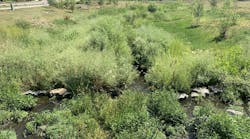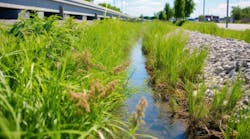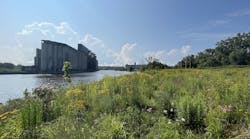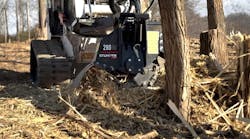BEER-SHEVA, ISRAEL (January 14, 2020) — Researchers from Ben-Gurion University of the Negev (BGU) have developed a nitrate soil sensor that will provide real-time and continuous measurement to better detect water pollution and measure conditions for higher agricultural productivity.
Natural nitrate levels in groundwater are generally very low. However, excessive application of fertilizers in agriculture can result in nitrate leaching from soil into water resources. Increased levels of nitrates in surface water bodies can result in vegetation or algae overgrowths, and in some cases, a loss of dissolved oxygen. Because high levels of nitrate are also harmful to human health, too much nitrate can contaminate groundwater drinking water sources.
However, crops need nitrates for healthy growth. Without nitrates, the chlorophyll in plants leaves reduces, turning pale green or yellow and reducing their ability to photosynthesize, which in turn reduces a farmer's crop yield. Finding the right amount of nitrate-containing fertilizer to apply to crops—enough to ensure a good yield but not so much as to risk ground- and surface-water sources—is challenging.
The new optical nitrate sensor is based on absorption spectroscopy. It enables continuous, real-time measurement of nitrate and can detect nitrate concentrations in the range of tens to hundreds of parts per million (ppm), which is the range relevant to growing crops. Its ability to continuously monitor soil nitrate levels produces a highly detailed portrayal of the rapidly changing concentrations of nitrate in the soil solution. The new sensor is also highly resistant to harsh chemical and physical soil conditions.
The sensor was developed by Professor Ofer Dahan of the BGU Zuckerberg Institute for Water Research, Professor Shlomi Arnon of the Department of Electrical and Computer Engineering, and Elad Yeshno, Ph.D. student at the Zuckerberg Institute.
According to the researchers, in addition to being labor-intensive, the current methods for measuring nitrate levels in soil are unable to provide real-time and continuous measurements of the nutrient's concentration in the soil. Farmers could use the new sensors to receive real-time data on the amount of nitrate available to their crops. This would help prevent over-fertilization, saving farmers money and reducing nitrogen contamination in groundwater and surface water.






